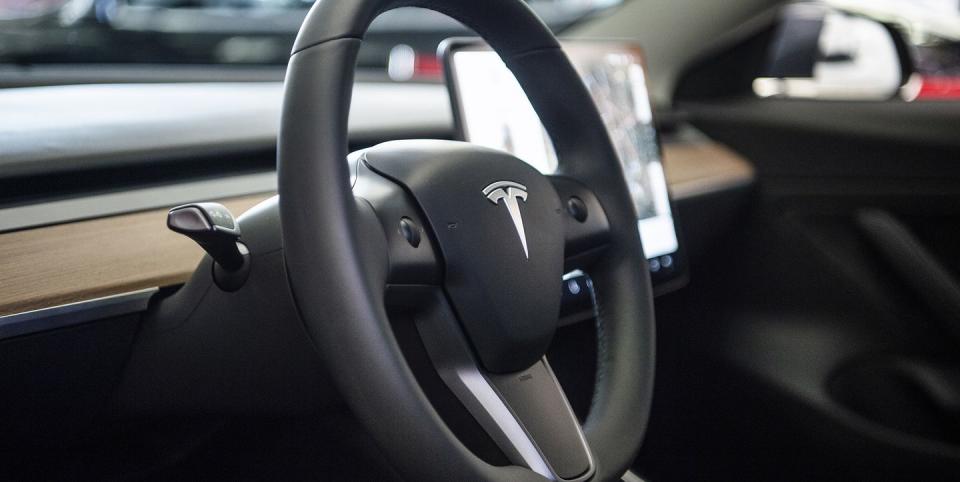A Worrying Number of Tesla Owners Treat Autopilot as Self-Driving

Tesla calls its bundle of driver-assist features Autopilot. It also sells a $15,000 package called "Full Self-Driving Capability" with the promise that fully autonomous driving will be enabled when the technology is ready. Tesla does not actually sell a full self-driving car, yet a lot of owners don't know this.
The Insurance Institute for Highway Safety (IIHS) announced today the results of a study where it found that 43 percent of 202 Tesla owners surveyed were comfortable considering their cars fully self-driving. Owners of Super Cruise-equipped Cadillacs—which allow for hands-off driving on pre-mapped, limited-access highways—were also surveyed, and 53 percent considered their cars fully self-driving. Additionally, 12 percent of those who own Nissan/Infiniti models equipped with ProPilot Assist consider their cars fully self-driving.
The Tesla stats are the most concerning. Even if the proportion of Tesla drivers who consider their cars fully self-driving is smaller than Cadillac Super Cruise owners, there are just far more Autopilot-equipped Teslas on our roads today. Tesla is also the only automaker to sell a package called "Full Self-Driving Capability" despite the fact that as of today, none of its cars are actually capable of full self-driving.
"The big-picture message here is that the early adopters of these systems still have a poor understanding of the technology's limits," said IIHS director David Harkey in a statement.
There have been a number of high-profile crashes involving Tesla vehicles with Autopilot enabled, and it's not hard to find examples of drivers treating cars as fully self-driving. Data from NHTSA released earlier this summer indicates that far more than any other automaker, Tesla has reported far more crashes in cars with so-called Level 2 driver-assist systems—Autopilot—engaged. Tesla has been criticized for not doing enough to inform the public that its current offering isn't a fully self-driving system, and this new data from the IIHS seems to back up those assertions.
While it's encouraging that a majority of Tesla customers don't consider their cars fully self-driving, 43 percent is still far too high. The study showed that people who used these semi-autonomous systems regularly were more likely to perform secondary tasks at the wheel with the systems engaged, like texting, using a phone app, or even looking at scenery. That false sense of security is ultimately a risk for everyone on the road, as the driver's attention is diverted from driving.
The main takeaway form the study is clear: Tesla, and any other automaker that sells automated driver-assist systems, could do a lot more to better educate its customers on the capabilities of their vehicles.
You Might Also Like

 Yahoo Autos
Yahoo Autos 